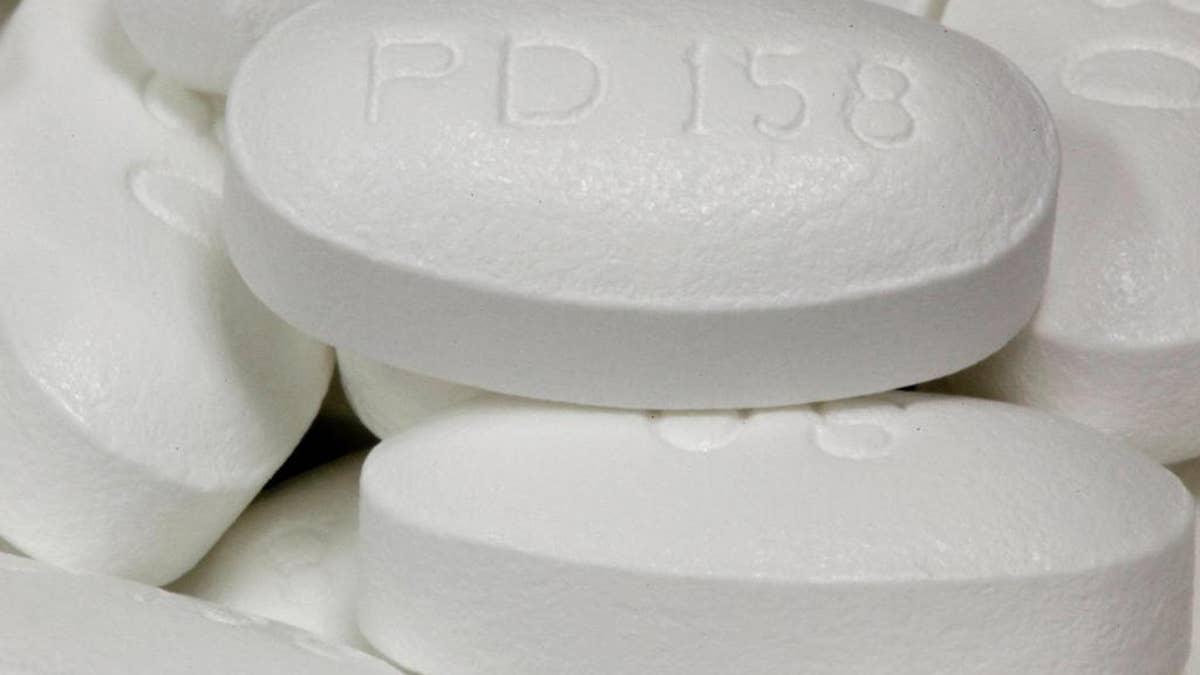
FILE - This June 14, 2011, file photo, shows the drug Lipitor at Medco Health Solutions Inc., in Willingboro, N.J. In a study published online Thursday, April 24, 2014, in JAMA Internal Medicine, 10 years of U.S. data suggest cholesterol-lowering statins are giving patients a license to pig out. Calorie and fat intake increased among statin users during the decade - an indication that many patients might be abandoning heart-healthy lifestyles and assuming that drugs alone will do the trick, the study authors said. (AP Photo/Matt Rourke, File) (The Associated Press)
People may do a better job of following doctors' orders to take statin drugs - prescribed to protect against cardiac problems - after they wind up hospitalized for a heart attack, a large study suggests.
"Our theory is that the heart attack hospitalization appeared to serve as a teachable moment, or a wake-up call, to patients to do everything possible to prevent another heart attack," lead study author Dr. Ian Kronish of Columbia University Medical Center said by email.
Millions of people worldwide take statins to help reduce their blood levels of low-density lipoprotein, or LDL, cholesterol - the bad kind that builds up in blood vessels, damages artery walls and can lead to clots and heart attacks.
The researchers studied more than 175,000 people age 65 or older whose doctors had given them prescriptions for statins.
They divided the patients into three groups: 6,600 who were hospitalized for a heart attack between 2007 and 2011, 11,000 who were hospitalized during that period for pneumonia, and 158,000 who weren't hospitalized at all.
About a third of the heart attack patients had been skipping their statins at least 20 percent of the time. Compared to non-adherent patients who'd been hospitalized for pneumonia, the previously non-adherent heart attack patients were 70 percent more likely to take their pills more regularly after they left the hospital.
The study also looked at what happened to the opposite kind of patients, that is, those who did take their statin medications consistently before a hospital stay for a heart attack or pneumonia.
Overall, about one-third of these people started skipping doses after going home from the hospital.
However, under these circumstances, people hospitalized for heart attacks were about 7 percent less likely to curb statin use after their stay than their peers treated for pneumonia, researchers report in the journal Circulation: Cardiovascular Quality and Outcomes.
But compared with people never hospitalized, these patients were 41 percent more likely to become less consistent in their use of daily statins during the study period.
One limitation of the study is that it used Medicare claims data for drugs and hospital services, which doesn't always accurately reflect what care patients receive or why, the authors note. Researchers also limited their analysis to patients who survived at least six months after their initial hospitalization, which may have weeded out the sickest people or created a study population with an inflated proportion of people who took their statins regularly.
Still, the results suggest that a heart attack hospitalization may be an opportunity for doctors to assess whether patients are taking statins as prescribed and motivate them to be more consistent in sticking with their drug regimen, the authors conclude.
"The time after a heart attack is a vulnerable period for patients both emotionally and physically," said Dr. Leslie Cho, head of preventive cardiology at Cleveland Clinic in Ohio.
"For patients who were previously non-adherent to taking their statins, they may now realize that it is something that they can do to prevent future heart attacks," Cho, who wasn't involved in the study, said by email.
On the other hand, if people took statins religiously and then had a heart attack, they might get discouraged and decide not to be so vigilant about these pills afterwards, Cho added.
"Patients who have had heart attacks need to recognize that statins actually prevent not only (repeat hospitalizations) but death," Cho said.







































